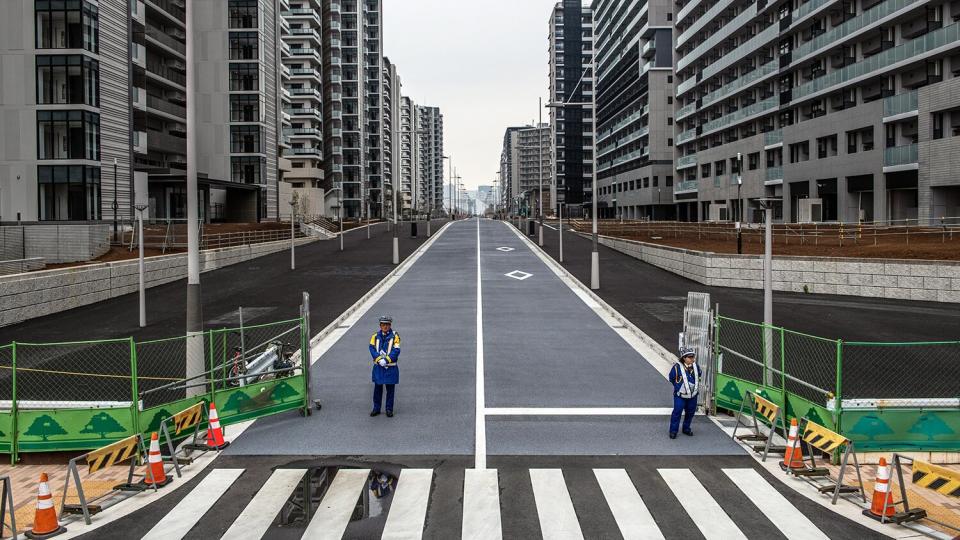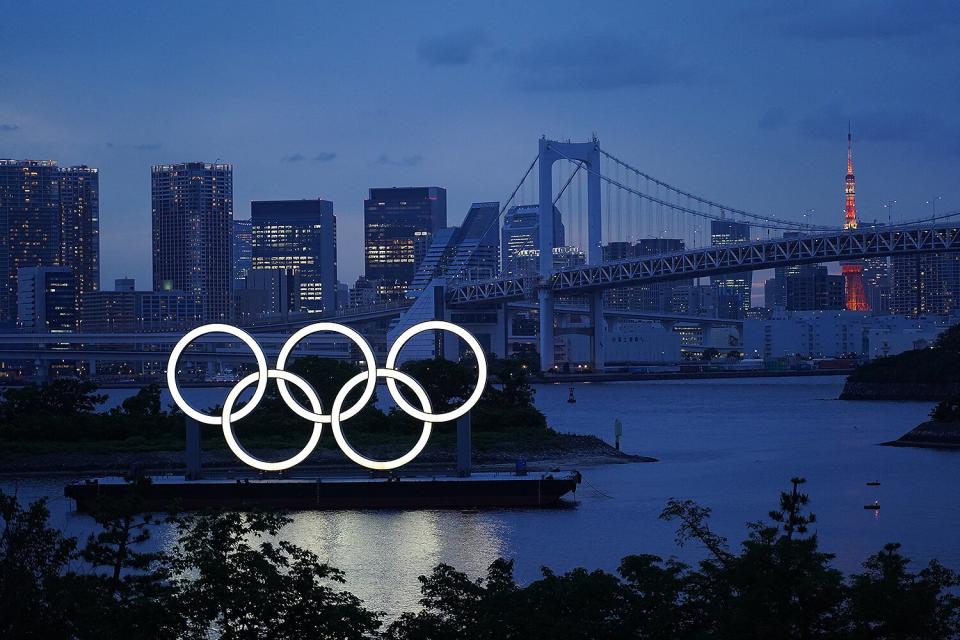First COVID Case Reported at Tokyo Olympic Village as President Ensures 'Games Are Safe and Secure'

- Oops!Something went wrong.Please try again later.
- Oops!Something went wrong.Please try again later.
An unidentified person tested positive for COVID-19 in the Tokyo Olympics athletes' village on Friday — one week ahead of the opening ceremony on July 23.
The person is now one of 44 people affiliated with the Olympics who have tested positive for the virus this month, according to a list kept by organizers. However, it is the first case reported in the athletes' village, heightening concerns that the event could become a superspreader event as COVID-19 cases continue to rise in Japan.
During a news conference Saturday, Tokyo 2020 President Seiko Hashimoto told reporters that the infected person is not an athlete but someone involved in organizing the Games.
RELATED: 10,000 Volunteers Pull Out of Helping at Tokyo Olympics amid Calls for Games' Cancellation
"I understand that there are still many worrying factors," she said, according to NBC News. "Organizers must try to make sure that people will understand that these games are safe and secure."
"We are sparing no efforts," Hashimoto added.
The news comes just one day after International Olympic Committee President Thomas Bach said there was "zero" risk of athletes infecting Japanese residents with the Coronavirus, Reuters reported.

Carl Court/Getty
The international event, which was meant to take place in the summer of 2020 but rescheduled due to the pandemic, has various safety protocols in place, including a ban on all spectators.
"No spectators will be allowed into any venues in Tokyo during the Olympic Games," the IOC said in a statement July 8, the same day the government of Japan declared a state of emergency in Tokyo as COVID-19 cases surged in the host city.
Never miss a story — sign up for PEOPLE's free daily newsletter to stay up-to-date on the best of what PEOPLE has to offer, from juicy celebrity news to compelling human interest stories.
The blanket spectator ban had been previously agreed upon by the IOC, International Paralympic Committee, and Tokyo organizers in June in the event that such a crisis would be declared.
According to the IOC's most recent health and safety statement on planned protocol, all participants must also be tested at least twice before flying to Tokyo — which is just the first of many rounds of testing.
RELATED: Cleveland Cavaliers Kevin Love Pulls Out of Tokyo Olympics: I Am 'Incredibly Disappointed'
All others attending the Games will be tested for the first three days upon arrival and then "regularly" throughout their time in Tokyo, "based on the operational nature of their role and level of contact with athletes," the organization outlined.
Listen below to our daily podcast PEOPLE Every Day for more on the Tokyo Olympics.
Olympians must also wear masks inside the village, even if they are vaccinated. Ample signage on social distancing and personal hygiene will also be displayed throughout.

Jinhee Lee/NurPhoto via Getty Tokyo Olympics
Some athletes, including Australian tennis star Nick Kyrgios, have decided to opt out of the Olympics in recent weeks.
"It's a decision I didn't make lightly," Kyrgios said in a statement on July 9. "It's been my dream to represent Australia at the Olympics and I know I may never get that opportunity again. But I also know myself. The thought of playing in front of empty stadiums just doesn't sit right with me. It never has."
RELATED: Usain Bolt Supports Tokyo Olympics Happening Amid COVID Pandemic
Thousands of volunteers have additionally pulled out of the Games — with many citing COVID-19 safety fears as their reason for withdrawing — and the reception to the event among locals in Japan has been mixed.
A May survey showed that nearly 60 percent of people in Japan wanted the Olympics to be canceled again this year, according to Reuters. Additionally, a petition to cancel the Olympics with 350,000 signatures was sent to organizers that same month, CNN reported.

